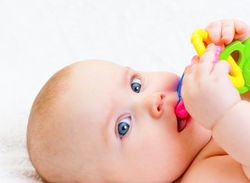 A Toddler and a Baby |  Motherhood |  Baby Girl with Soother |  Sleeping Newborn |  Newborn |  Newborn Baby |
|---|---|---|---|---|---|
 Siblings |  Motherhood |  Children's Toys |  Drawing Together |
Early Head Start
(Ages 0-3)
MCCDC Early Head Start (EHS) serves infants and toddlers under the age of 3, and pregnant women. The EHS program provides intensive comprehensive child development and family support services to low-income infants and toddlers and their families, and to pregnant women and their families.
About EHS
Early Head Start is designed to nurture healthy attachments between parent and child (and child and caregiver). Services encompass the full range of a family's needs from pregnancy through a child's third birthday.
How to Apply
Apply in person at:
790 SW 7th PL Ontario Oregon 97914
or
Apply Online
You may also do a application over the phone please make an appointment.
541-889-2393
As infants and toddlers grow and change, and as family needs evolve, MCCDC can support them over time. MCCDC provides options to help ensure that families can stay within a consistent, supportive setting that offers strong relationships and the same full range of developmentally-appropriate care and services. MCCDC Provides for it's EHS familes a Home-based service.
-
Home-based services: The full range of Early Head Start services are provided through weekly home visits to each enrolled child and family. The home visitor provides child-focused visits that promote the parents' ability to support their child's development. These visits last about an hour and a half each. About twice per month, the program offers opportunities for parents and children to come together as a group for learning, discussion, and social activity.
Additional Information on what is involved with Home-based services is available HERE.
A national evaluation conducted by Mathematica Policy Research, Inc., and Columbia University's Center for Children and Families, in collaboration with the Early Head Start Research Consortium, found:
-
At the end of the program, 3-year-old Early Head Start (EHS) children performed significantly better on a range of cognitive, language, and social and emotional development measures than a randomly assigned control group. Additionally, the parents of the 3-year-olds scored significantly higher than control group parents on many aspects of home environment, parenting behavior, and progress toward self-sufficiency.
-
Two years after the end of the program, prior to children entering kindergarten, positive impacts of EHS remained in areas of children’s social and emotional development, parenting, and parent well-being. Furthermore, those children who experienced EHS followed by formal early childhood education experiences (e.g., center-based child care, Head Start, or state pre-kindergarten) tended to have the best overall outcomes at the start of school.
-
By fifth grade, there was some evidence of sustained impacts of EHS on children’s social and emotional well-being, although we did not see the broad pattern of impacts for child and family outcomes found at earlier ages. Nonetheless, positive impacts persisted for some subgroups of children and families. For example, EHS demonstrated sustained impacts on children’s social and emotional development, parent support for education, and parent mental health among African-American families.
-
The Early Head Start Research and Evaluation Project (EHSREP) began in 1996, at the time the Early Head Start program was created. It involved 3,001 children and families in 17 sites; half received EHS services and half were randomly assigned to a control group that did not receive EHS services. Parents and children were assessed when the children were 14 months, 24 months, 36 months old, in the spring prior to kindergarten entry, and again in the spring of the sixth year of formal schooling (fifth grade for most children).
For more information, visit: https://www.acf.hhs.gov/opre/research/project/early-head-start-research-and-evaluation-project-ehsre-1996-2010